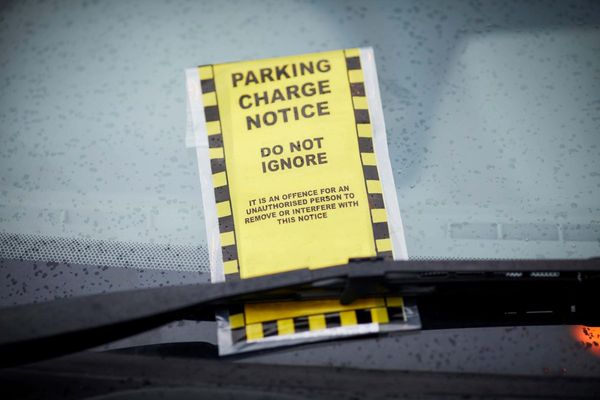WASHINGTON _ Jim Clyburn has the "10-20-30" plan. Tim Scott has "Opportunity Zones."
For years, these two South Carolina members of Congress _ Clyburn a House Democrat, Scott a Senate Republican, both African American _ have promoted their own anti-poverty proposals in parallel lanes, talking past each other rather than working together.
Clyburn, the U.S. House Majority Whip, has even publicly expressed deep skepticism about the integrity of Scott's approach to helping the nation's poor, suggesting it picks "winners and losers."
Now, however, Clyburn appears to be softening his rhetoric, and there is a chance his and Scott's proposals can intersect _ if partisan politics don't get in the way.
On Wednesday, Clyburn will introduce a new version of his "10-20-30" plan, which requires that 10 percent of funding for certain federal programs go to "persistent poverty" counties, defined as places where 20 percent of the population has lived under the poverty line for 30 years or more.
The revised legislation would expand the formula to even more federal programs and, in a twist, would additionally require applicable federal programs to invest in census tracts with poverty rates of more than 20 percent.
Census tracts _ geographic areas smaller than counties _ are the entities eligible for designation as "Opportunity Zones."
The Opportunity Zone program, which Scott secured as part of the 2017 Republican tax law, would provide tax incentives to businesses making long-term investments in economically distressed communities. The zones are selected by governors from eligible census tracts.
Between 2009 and 2017, Clyburn was able to work with Democrats and Republicans to implement the 10-20-30 formula across nearly three dozen federal departments. The Opportunity Zone program is still getting off the ground, but there is tremendous enthusiasm for the initiative among elected officials and community leaders in both parties, as well as with investors.
In an interview with McClatchy on Tuesday, Clyburn explained how applying the 10-20-30 formula to census tracts would allow poor communities to qualify for grants even if their counties don't meet the 10-20-30 threshold.
"Richland County (in South Carolina), I don't think it's a 10-20-30 county. But Eastover, Hopkins and other communities around Columbia are," Clyburn said.
He also described, for perhaps the first time, how his proposal could work alongside Scott's. He gave as an example an Opportunity Zone in Charleston, where a real estate developer could receive tax breaks for building new housing. At the same time, 10-20-30 funding could establish the infrastructure for internet access near that development.
"It's a great deal for Tim Scott," Clyburn said of his 10-20-30 plan. "To be doing what he is with Opportunity Zones, and for me to be who I am and what I am with 10-20-30, we complement each other."
In a statement to McClatchy, Scott's press secretary, Ken Farnaso, said the senator "continues to believe that Opportunity Zones are the strongest tool to fight poverty in our nation.
"We are pleased to hear Congressman Clyburn shares support for Opportunity Zones," Farnaso continued, "and welcome further conversations on ideas that will help the 52 million Americans living in distressed communities."
Clyburn said the two South Carolinians largely communicate through their "mutual friend" Cory Booker, the junior U.S. senator from New Jersey and a 2020 Democratic presidential contender.
Booker _ one of three black U.S. senators along with Scott and fellow Democratic presidential candidate Kamala Harris of California _ is a co-sponsor of both 10-20-30 and Opportunity Zones legislation. His allegiance to both policies signals potential for Clyburn and Scott to ultimately find common ground.
"There is no silver bullet to solve this challenge but there are a number of tools at our disposal �" like Opportunity Zones and like our 10-20-30 bill �" that will make serious progress on meeting the challenge of persistent poverty," Booker said in a statement.
But while Clyburn's staff has contacted Scott's office to discuss the 10-20-30 legislation, so far the lawmakers have not spoken directly to each other about their proposals.
Those conversations could be critical. Though Clyburn's bill is likely to gain traction in the Democratic-controlled House, he might need a Republican champion in the GOP-controlled Senate. Scott has some influence in the Senate when it comes to convincing colleagues it behooves his party to embrace policies that help disadvantaged Americans.
Republicans might also be eager to pass new legislation that can be touted as enhancing Opportunity Zones, touted as a crowning achievement of the Tax Cuts and Jobs Act.
Clyburn didn't suggest on Tuesday he was eager to talk to Scott, but made it clear he thought previous reports about his opposition to Opportunity Zones were inaccurate.
"I'm against governors leaving out impoverished communities," Clyburn said. "I'm not against Opportunity Zones."
Farnaso, in his statement for Scott, did not present the senator's specific views on 10-20-30.







